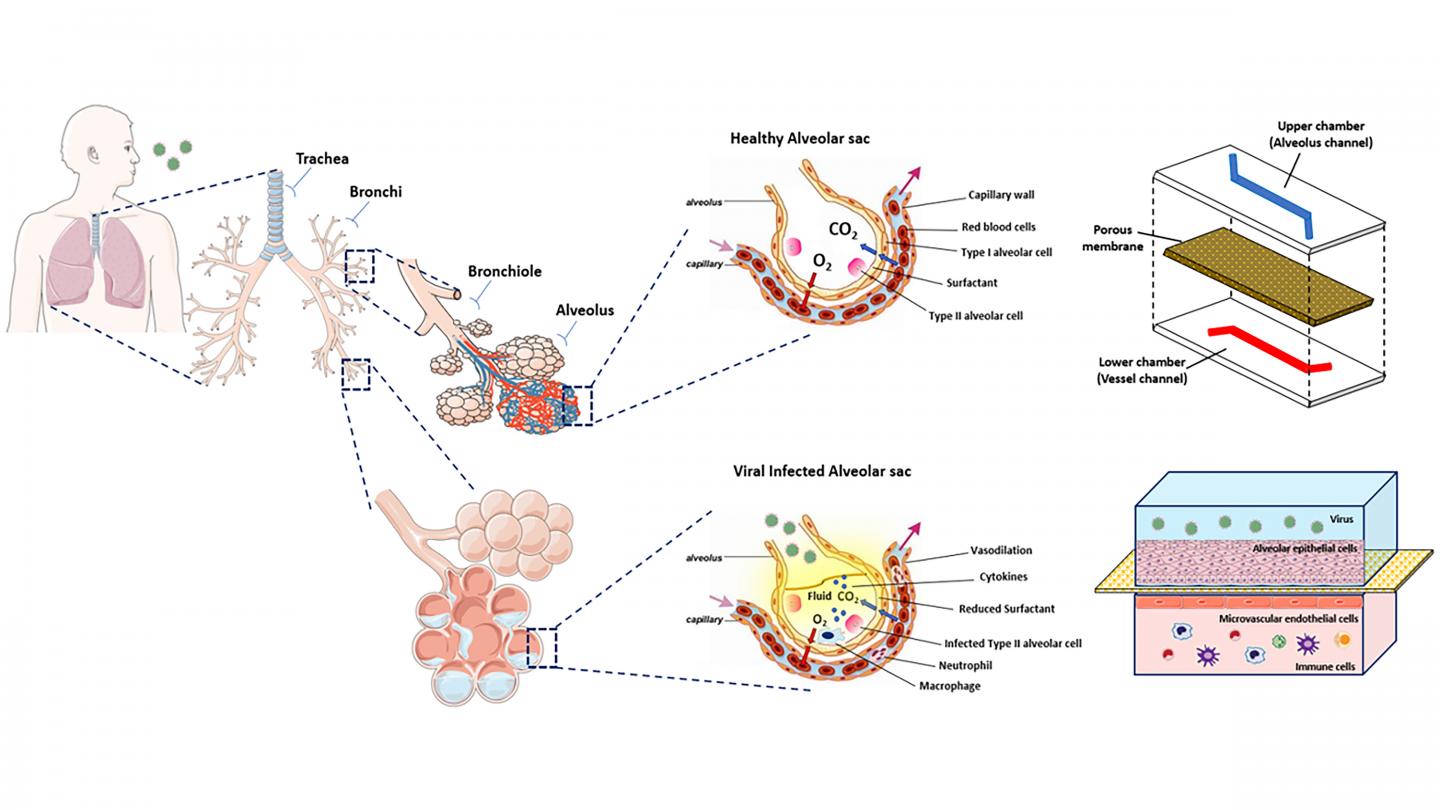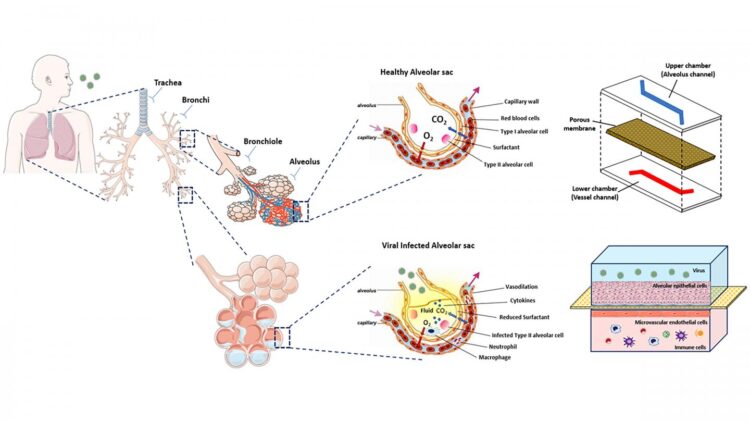Lung-on-a-chip platforms can provide a more rapid alternative for preliminary testing of drug candidates to treat coronavirus-induced lung infections

Credit: Yildiz-Ozturk
WASHINGTON, March 23, 2021 — According to the National Institutes of Health, respiratory viruses are the most frequent cause of disease and death in humans, a fact highlighted by the COVID-19 pandemic. Despite the potential to cause severe disease, over 70% of viral infections remain asymptomatic.
Animal models have been used widely to understand how these viruses infect the host and how the host responds to prevent infection and onset of diseases. Data based on animal models, however, does not always apply well to humans, given the variability in species and genetics.
In Biomicrofluidics, by AIP Publishing, researchers from Ege University and the University of Nottingham review a range of lung-on-chip technologies that represent the vital properties of lung tissue and are capable of recapitulating the fundamental aspects of various pathologies.
“Lung-on-chip platforms are able to reconstruct the multicellular architecture, the physiochemical microenvironment, and the tissue-tissue interface of the human lung in vitro,” said author Ozlem Yesil-Celiktas.
The researchers reviewed various state-of-the-art lung-on-chips and their applications in examining, diagnosing, and treating human viruses, including the coronavirus that causes COVID-19. Different platforms focus on different parts of the lung functions, such as small airway-on-chips and lung alveolus chips.
The knowledge and expertise accumulated through the development of physiologically relevant lung-on-chip models paves the way to use these models to study the interaction of several human respiratory viruses with the airway epithelium and alveolus in an organ-relevant setting.
“The current pandemic, which spread to almost every continent in just a few months, makes us realize how much we need a practical, humanized platform to expedite the trials for potential antiviral drugs and vaccines,” said Yesil-Celiktas.
Considering new research showing one of the aftereffects of COVID-19-related pneumonia is pulmonary fibrosis, the lung-on-chip systems, which focus on lung fibrosis, enable a deeper understanding of disease mechanisms and related immune and technological responses.
Despite the advantages, the lack of vascularity and integration with external immune cells means these organ-chip platforms require the integration of these components to the microchips, not only for viral infections but also for other pathologies.
Going forward, the researchers will integrate modular sensing apparatus to provide online monitoring opportunities along with diagnostic outcomes. Such biomimetic systems also enable high-resolution and real-time imaging, as well as in vitro toxicological analysis or measurements of metabolic activities of living cells.
###
The article “Human lung-on-chips: Advanced systems for respiratory virus models and assessment of immune response” is authored by Ecem Saygili, Ece Yildiz-Ozturk, Macauley J. Green, Amir M. Ghaemmaghami, and Ozlem Yesil-Celiktas. The article will appear in Biomicrofluidics on March 23, 2021 (DOI: 10.1063/5.0038924). After that date, it can be accessed at https:/
ABOUT THE JOURNAL
Biomicrofluidics rapidly disseminates research in fundamental physicochemical mechanisms associated with microfluidic and nanofluidic phenomena. The journal also publishes research in unique microfluidic and nanofluidic techniques for diagnostic, medical, biological, pharmaceutical, environmental, and chemical applications. See https:/
Media Contact
Larry Frum
[email protected]
Related Journal Article
http://dx.





